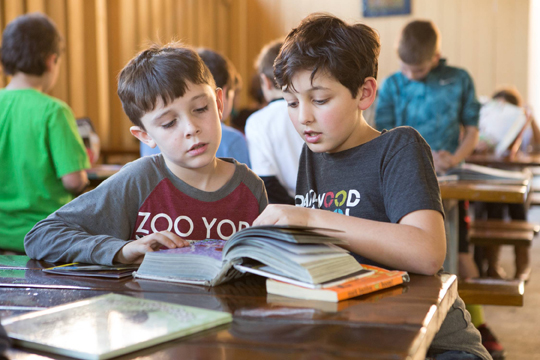Social Studies

In preparation for a life lived as a responsible and ethical, empathic, and socially-conscious member of a global society, students on the elementary campus are immersed in a social studies curriculum where they learn about themselves to understand others; they learn about history to understand the present; they learn about human rights and social justice to understand the importance of their role in the world. These experiences inspire our students to look for ways they can make the world a better place in the present as junior activists and to envision a future in which they take responsibility for others in their community. Through their academic curriculum, critical thinking and problem-solving opportunities abound as students learn to analyze sources of information, examine the causes of social issues, and participate in discourse that requires respect for multiple perspectives.
Our students embark on a human rights-centered curriculum as early as kindergarten, when they learn that we are all born free and equal, contemplate rights and responsibilities, and distinguish between needs and wants. Through honoring a diverse range of special events throughout the year, first graders come to understand various belief systems and that people live their daily lives in different ways. Expanding on their yearlong study of communities, second graders discover how indigenous peoples on various continents have made sense of their world, adapted to change over time, and innovated in order to survive. Third graders take this a step closer to home by undertaking a study of Los Angeles and the local indigenous peoples, which includes a comparative study of the California Chumash and Arizona Hopi nations. Fourth graders study California history, from pre-explorer through early statehood. They build ‘social scientist mindsets,’ exploring perspectives and developing inquiry skills. Their learning culminates in the creation of an original script, based on a particular moment of change, where students apply the skills they have learned as they study about, write, and ultimately perform a play, depicting such topics as freedom of speech, labor rights, and immigration. Fifth graders explore United States history with a focus on the critical examination of sources and the freedoms and challenges of America in relationship to its diverse people groups. They explore the stories of diverse peoples on American soil and how these have been told, evaluating bias and attempting to understand how multiple perspectives can inform a more complete truth. Sixth graders consider how the environment influences human migration, ancient ways of life, and the development of societies. Along the way, students engage in self-selected inquiry studies that enable them to hone research skills, conduct informational reading strategies, weigh historical sources and evidence, develop critical thinking skills, and consider both historical and current events through a human rights lens.